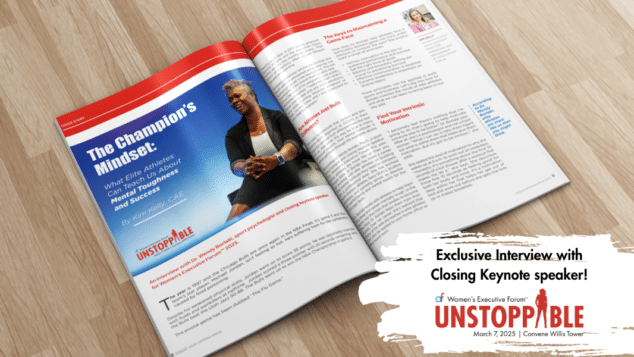What CLOs Want Their CEOs to Know

 Tracy King, MA, CAE, CEO & Chief Learning Strategist, InspirEd
Tracy King, MA, CAE, CEO & Chief Learning Strategist, InspirEd
As CEO & Chief Learning Strategist of InspirEd, Tracy King leverages her more than 20 years in the industry consulting with organizations on education strategy and learning design. Tracy is the author of Competitive Advantage, and she advises associations on growing reliably profitable and sustainable CE programs that transform learners. Tracy specializes in the intersection of learning science and technology; her instructional design team produces engaging, inclusive, and transformational learning experiences. She’s a thought leader, invited speaker, master strategist, award winning learning designer and DELP Scholar.
Workforce disruptions challenge the way we do business—and chief learning officers are playing a greater strategic role in a rapidly evolving environment to ensure their workforce can perform today and prepare for future requirements.
These shifts signal both new learning needs and updated demands for delivery. They also necessitate a new awareness that the players serving the continuing education market are more diverse and more sophisticated than ever before.CEOs, here’s what CLOs want you to know.
Academic institutions are growing their CE role through strategic partnerships.
Continuing education and extension programs are not new mechanisms for colleges and universities, but academic institutions are experimenting with growing their reach and revenue with technology and corporate partnerships.
Considering Edison created a thousand prototypes before his lightbulb breakthrough, massive open online courses (MOOCs) have made a profound turnaround from boring and disappointing to disrupting the terminal degree. Georgia Tech and Udacity first partnered in 2013 to deliver a master’s degree in computer science. Fall of 2018, edX announced nine new MOOC-based master’s programs with esteemed university partners. And in classic MOOC style, learners can set their own pace, pay considerably less, and often audit for free learning with renown faculty.
But those are just the degree-based programs.
Academic institutions are increasingly negotiating partnerships with corporations to leverage their subject expertise, instructional design teams, and accreditation powers for custom training solutions and credentials to meet corporate partner’s business objectives. Not just one-off projects, but long-term collaborative partnerships. Grow with Google has designed a modularized IT curriculum to prepare qualified entry level professionals that’s now accredited by 25 institutions. Another common example, Wells Fargo has partnered with St. Catherine University on a leadership certificate program to enhance leadership capacity without the demands of degree requirements.
What does this mean for association education?
Academic institutions are seeking to develop alternative routes to pipeline development and continuing education through strategic partnerships. Associations should be a part of those conversations. Part of those partnerships. When scanning our own learning portfolio, are there course or certificate programs that could be customized and licensed to corporations? Can we envision a role for ourselves collaborating.
Corporate workplace learning budgets are increasing to close skill gaps with in-time learning.
The corporate training industry is tipping over 160 Billion in North America and more than 355 Billion worldwide. Annual surveys show budgets are increasing, trending toward eLearning, and investing in technology that facilitates social, micro, mobile, self-directed learning available at the point of need. The McKinsey Global Institute Report flags that 62 percent of corporate executives consider retraining and upskilling their workforce an urgent business priority to address skill gaps, automation, and the accelerating pace of transformation rippling throughout the entire enterprise.
Meanwhile, there’s a realization that formal learning comprises a much smaller percentage of overall professional development—and frankly, working adults just don’t have a lot of time to pause for new skill development. Bersin by Deloitte approximates 24 minutes per week is all that remains for workers to focus on training and development.
But increasing the training budget comes with new expectations and accountability. Training programs and external PD budgets must now be aligned with business objectives. And we can’t be satisfied with butts-in-seats or eLearning completion as indicators we’ve met our objectives. Training departments are increasingly accountable to measure skill gaps are closing, best practices are being transferred to practice, and reinforcement is available to improve performance.
Which means training can no longer be an event. It’s continuous.
The conversation in workplace learning now is how to integrate work and learning. Learning and working are no longer sequential, so worker-learners require a new paradigm to upskill, reskill, and prepare for a future where their current job may be radically overhauled by technology. They don’t have time to sift through all of the information on a topic or invest in info-loaded programs; adult learners desire high quality consumable bites for in-time “I need help now” situations as well as access to skill development learning experiences for building competency.
What does this mean for association education?
The fact that learning is a process and not an event is a sobering thought for associations who rely on event-based education, whether that be a conference, course or webinar. We’ve got to consider what role we want to play in formal learning and informal in-time learning opportunities. This means investing in the types of learning design and technologies that deliver results – knowledge, skill, and application. What would it look like for us to differentiate information-based programming from true learning addressing skill gaps? And how could we develop a relationship with members by delivering content over time, allowing us to reach into their context of application?
Learning technology companies are now in the content and credentialing business.
Learning management systems have evolved from serving as a content database to a learning content authoring and delivery platform to a learning pond stocked with fish, or in this case, courses and micro-credentials. Like Degreed.
Kelly Palmer and David Blake, authors of The Expertise Economy, and executive team members of Degreed, rightly point out information is rarely the key to resolving skill gaps and workplace issues. Knowing something doesn’t mean you can do it, so we must attend to what will: progressive (stacked) competency development.
So what does Degreed offer?
Individuals can create an account and get certified in 1500 different skills. They have created pathways to demonstratable, and portable, expertise. But they’re so much more than a professional development site, Degreed integrates with a business’ LMS to offer these stacked skill development programs, benchmark team skill-sets and achievements, and formerly certify expertise. Not the letters after one’s name credential, but similar to the digital badge proof-of-competency that employers want in their teams and individuals can assemble in their professional portfolio.
What does this mean for association education?
We’ve been talking about digital badging, stackable skill-based learning, and mastery progression in programs for years in association circles. Now this technology is available and accessible to both individuals and businesses. What role do we want to claim in this? How we will respond to professionals’ need to not only develop skill but prove it? How can we align our program offerings to craft pathways to mastery? Are we willing to map the knowledge and skill progression for core competency areas within our industry so we can create a meaningful stacked curriculum to meet learners where they are and develop an ongoing relationship with them through our learning programs?
Associations are poised to lead or concede.
This is not a meetings issue or marketing issue, this is an association management issue. Learning is on the leading edge of what’s required to advance workforces. But it can’t just be curated, committee selected or repurposed. It must be purposeful. It must be designed to offer pathways to mastery. It must be both formal in at the point of need. Because workforce disruptions signal both new learning needs and updated demands for delivery. What does this mean for association education? The new value proposition in continuing education is transformation. Just administering events is no longer the solution that fits the need in a market that expects real world outcomes. If education is central to our mission and value proposition, and if we’re concerned about market competition, this is a strategic level concern. Advancing the industries we represent is both a mission and a strategic learning imperative. It requires we seek strategic partnerships to cultivate a qualified pipeline and to consider our role in anytime-learning as professionals seek options for continuous shallow and deeper steps toward mastery. And it requires we decide whether we are going to back our promise of education programming with learning design that facilitates results professionals and employers are eager to pay for. We can choose to lead, or to concede that we’ll manage our corner of the workforce development.
Choose to lead.
Tags
Related Articles
The Champion’s Mindset: What Elite Athletes Can Teach Us About Mental Toughness and Success
An interview with Dr. Wendy Borlabi, sport psychologist and closing keynote speaker for Women’s Executive...
Great Bosses, Greater Impact: Leadership Lessons that Stick
The best bosses leave more than instructions—they leave echoes of confidence, creativity, and leadership that...
Double Your Footprint: Enhancing Conferences with a Hybrid Event Workflow
By combining on-site engagement with a digital experience, hybrid events can attract diverse audiences, boost...


 Tracy King, MA, CAE, CEO & Chief Learning Strategist, InspirEd
Tracy King, MA, CAE, CEO & Chief Learning Strategist, InspirEd

